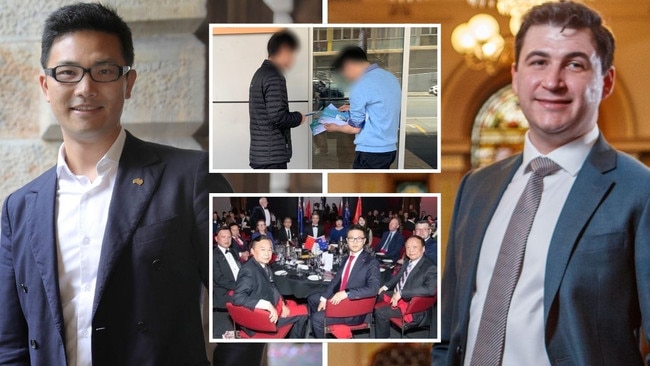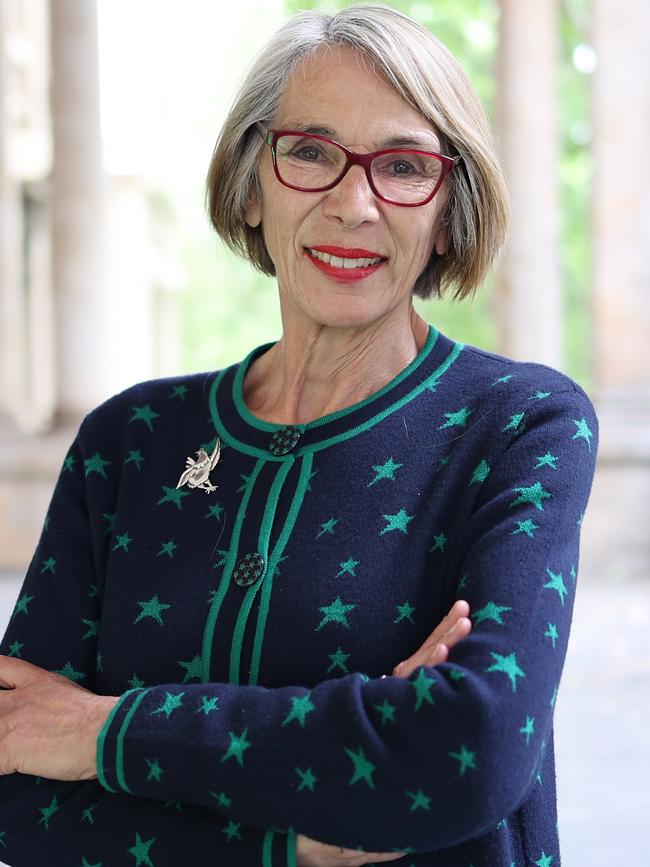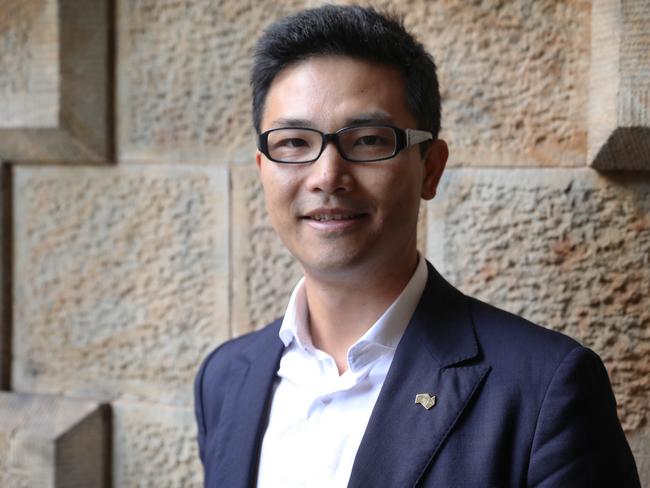China-linked fraud leaves Adelaide City Council in chaos
Up to four councillors could be forced aside with the Adelaide City Council in crisis amid revelations Chinese students were at the centre of major voting fraud at the last election.

The Adelaide City Council is in crisis amid revelations that Chinese overseas students were at the centre of major and concerted voting fraud at the last election.
The councillor implicated in the scandal, Labor-linked business consultant Jing Li, is at risk of being forced aside, but there are also calls for another three councillors on the 12-member council to have their victories overturned amid broader doubts over the legitimacy of the 2022 council election results.
Mr Li is vice-president of the SA chapter of the Australian China Business Council and spent three years as director of the SA government’s China Engagement Strategy through the Department of Trade, Tourism and Investment. Most recently he spent almost two years working for the commonwealth as a global engagement manager for Austrade, a position he left last June as the vote-harvesting scandal lingered in the background.
In a major scam, three protagonists of electoral fraud were found to have illegally obtained the names and residential details of Chinese students living in Adelaide CBD residential towers and cast votes on their behalf without their knowledge.
Ballots were filled in on behalf of Chinese students living in SA, where, under the state’s electoral laws, non-citizens are allowed to vote when they have lived in the state for just one month.
The perpetrators of the voting fraud have been found to have obtained people’s personal details and then forged their signatures on at least two dozen ballot papers.
There have also been claims that diplomatic personnel at Adelaide’s controversial and extravagantly staffed Chinese consulate were approached to garner support for Mr Li’s candidacy at the 2022 election.
One of the Chinese nationals who blew the whistle on the operation was allegedly assaulted on the streets of Adelaide and also interrogated upon returning to China.
Claims that ballots were being improperly obtained and lodged surfaced in the immediate aftermath of the election where former SA Labor minister Jane Lomax-Smith defeated former senator Rex Patrick by just 52 votes. Voting in local government elections is voluntary in SA and the typically paltry turnout meant even a modest level of voting fraud could have been pivotal in the result.


Court applications were initiated both by Mr Patrick and an unsuccessful Central ward council candidate, now SA Liberal Party state director Alex Hyde, who was defeated by Mr Li in the ACC Central ward by just 24 votes.
While Mr Patrick subsequently withdrew his application when it emerged the number of dubious votes would not have affected the lord mayoral results, Mr Hyde pursued his claim and was successful earlier this month in the SA District Court, sitting as the Court of Disputed Returns.
Judge Michael Burnett found, on the balance of probabilities, that at least 24 votes had been cast for Mr Li where illegal practices affected the result.
Mr Li has refused to comment about the case, which will return to court next Friday to determine whether he or any other councillors should have their election overturned.
But Mr Hyde told The Australian the case had already raised grave concerns about the integrity of local government elections, the broader role of Chinese nationals and possibly the Chinese state in Australian democracy.
“The finding that an Australian election in a capital city local government was impacted by foreign nationals should ring alarm bells loud and clear,” Mr Hyde said. “Worse still is that the court heard allegations from one witness that the Chinese consulate in Adelaide was asked to assist in this election. Since then one of my witnesses was assaulted in the street and was also interrogated by Chinese officials upon return to China.
“It raises serious questions around electoral integrity in Australia and serves as a reminder that the important democratic systems we place our faith in are only as strong as their weakest point, including the people charged with oversight. We know that as far back as July 2022 the Electoral Integrity Taskforce, which involves Home Affairs, ASIO, the AEC and state electoral commissions, had flagged the local government elections in SA as a risk, yet no real preventative action was taken.
“Hundreds upon hundreds of questionable enrolments were submitted by the same person, processed by the council and then admitted to the roll by the commissioner, before a number of ballots were then harvested, collected or otherwise influenced by illegal practices.”
Mr Hyde also took aim at the Electoral Commission of South Australia, saying it had “spent in the region of half a million in taxpayer dollars defending the results of a dodgy election”.
The District Court documented the use of forged election papers and illegal dealing of ballot papers, evidence of which was captured in secret photographs taken outside overseas student residential towers in the Adelaide CBD during the election campaign.
No criminal charges were laid and no findings of bribery were made, but a finding was made that persons had dishonestly exercised a vote at an election they were not entitled. While Mr Li has not been charged with anything, Judge Burnett determined that three people working on Mr Li’s behalf were responsible for carrying out the electoral fraud. Judge Burnett said Keith Jin and William Bai were acting on behalf of Mr Li when they were photographed with five ballot papers outside of the Vision on Morphett apartments in October 2022.
The pair were also acting on behalf of Mr Li when they engaged in illegal practices with 10 ballot papers at the Stonemill Rice Roll Restaurant in October 2022.

Judge Burnett also found that a third person, Trinity Zhang, was working on behalf of Mr Li when she collected an unspecified number of unfilled ballot papers from student apartments.
The case hinged in part on a successful application made in the Supreme Court in June 2023 by Mr Hyde to gain access to secret tapes documenting the conduct of Mr Li and his supporters during the election campaign.
The tapes included vision of Mr Jin and Mr Bai collecting ballot papers which had not bee filled out and recordings of conversations at Chinese restaurants in the Adelaide CBD.
However, the Supreme Court denied Mr Hyde access to another tape, made by a man named Colin Ma, who claimed to have been invited to meet Mr Li to discuss tactics for his election campaign.
“In his statement, Mr Ma says ‘Jing Li told us his plans to obtain people’s support for the election’,” Supreme Court judge Adam Kimber said in considering Mr Hyde’s application. “He says Mr Li ‘said he knew people … who owned or operated apartment buildings in the city and knew a lot of information about Chinese students. He says ‘Jing Li also told us that he had contacted the Chinese consul-general in Adelaide for his support but the consul-general did not think he could do this at this time.”
While the matter will return to the District Court on April 4 to determine whether Mr Li’s victory should be overruled, the issue blew up last week at the Adelaide City Council where three councillors moved to act against Mr Li and three other potentially tainted candidates.
Other councillors refused to attend the special meeting, meaning it did not have a quorum.
Mr Patrick – running for the Senate at this federal election with the Jacqui Lambie Network – said the case raised concerns about the potential involvement of the Chinese consulate in SA.
“We do know that for some of these Chinese nationals that the view from China is that their sole loyalty must be to China,” Mr Patrick told The Australian.
In response to the scandal, independent state MLC Frank Pangallo has brought a private member’s bill to state parliament preventing non-citizens from voting in local government elections. It has passed the SA upper house and is expected to become law when it is considered by the Legislative Assembly.



